(ESP/ENG) Mujer indígena, Mujer valiente | Indigenous woman, courageous woman
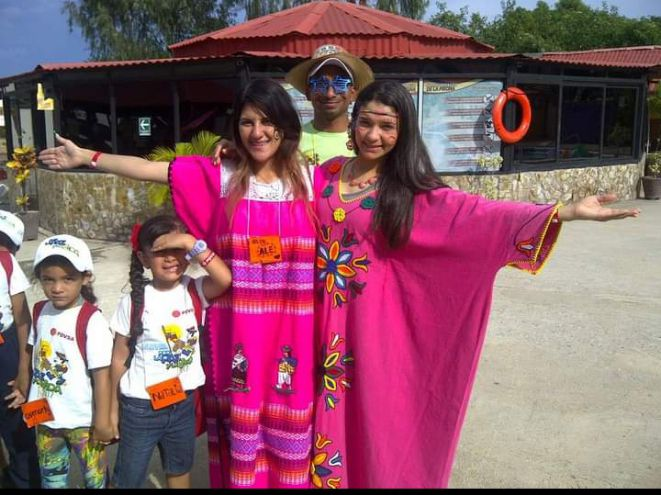

El día de ayer se celebró el día internacional de la mujer indígena y me llena de orgullo por que toda la vida en Venezuela se ha luchado por la igualdad de sus derechos y para que se le de la misma oportunidad a la mujer indígena, le debo respeto por su herencia en la siembra de las tierras de nuestro país, sus lenguas y a sus tradiciones porque se hacen parte de la cultura venezolana, aunque siguen muy lejanos los pueblos originarios ,se les debe respeto y valor y espero que perdure en los tiempos.
Yesterday was celebrated the international day of indigenous women and it fills me with pride because all my life in Venezuela has fought for the equality of their rights and to give the same opportunity to indigenous women, I owe respect for their heritage in the planting of the land of our country, their languages and their traditions because they are part of the Venezuelan culture, although the original peoples are still very distant, they are due respect and value and I hope it lasts in time.
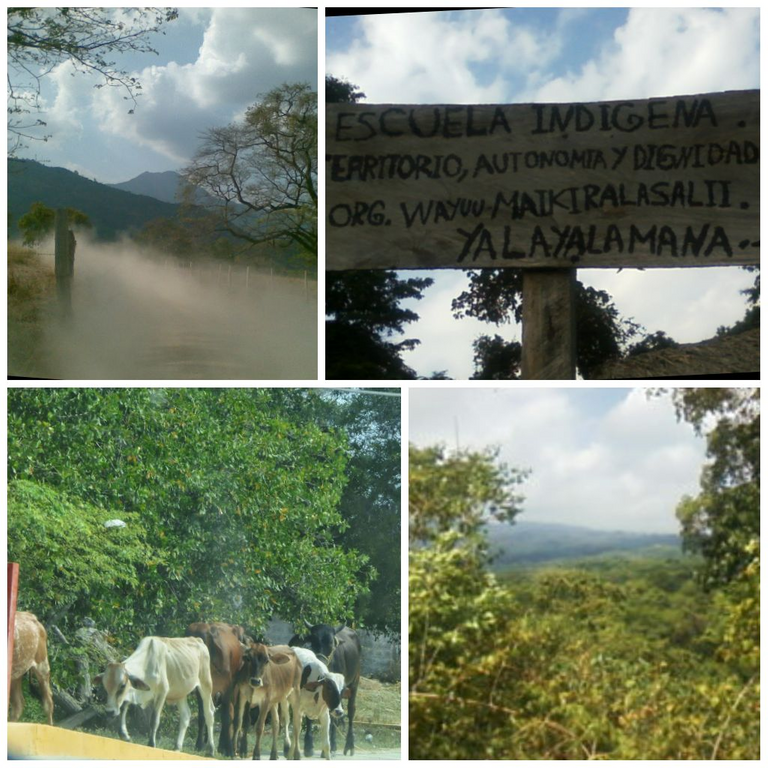
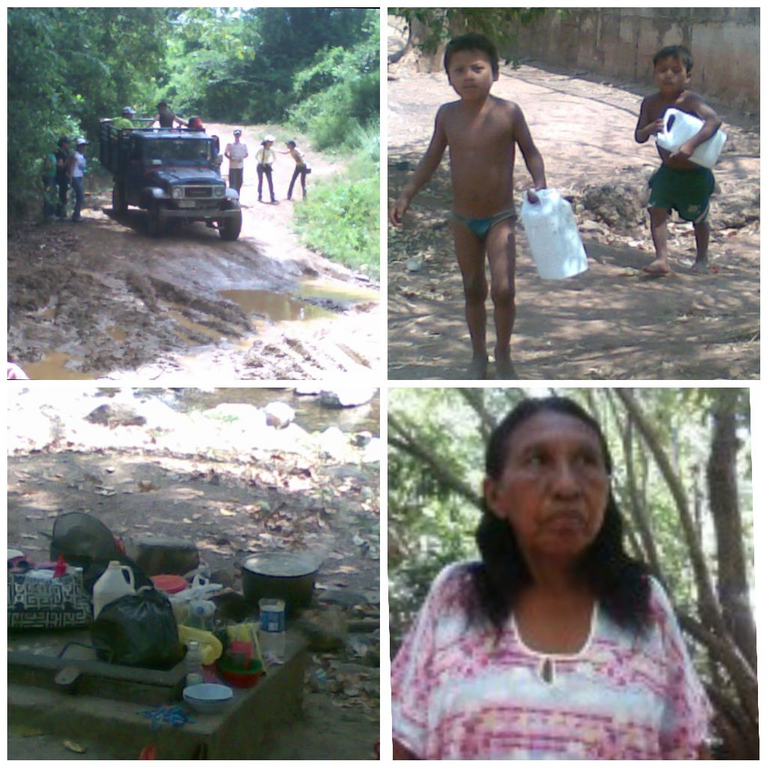
Desde los 90 hubo un patrón tomado en el municipio Machiques de Perijá, donde vendían a las niñas o había una especie de intercambio, con o sin el consentimiento de las niñas, muchas veces las regalaban porque la misma mamá tenía hasta 12 niños y prefería regalar algunos porque no podían mantenerlas, entonces llegaban en las familias pudientes para hablar con los patrones y de 7 a 10 años las las regalaban, ya ellas sabían lavar ropa, limpiar casa, hacer almuerzo, esas niñas no tenían descanso, la familia de mi papá era de allá de Machiques y cada vez que viajábamos en vacaciones yo estaba pequeña, pero no entendía como esas niñas que tenían mi misma edad, tenían que ser las muchachas de servicio a cambio de estudio, era como una especie de esclavitud, yo me asombraba, porque eran niñas de mi edad en aquel entonces, con el pasar de los años fui entendiendo un poco y muchas veces esas niñas preferían estar limpiando casas que vivir en los caseríos, esos caseríos son casas muy grande donde viven de 10 a 15 familias y cada familia como mínimo con 4 integrantes. Ellas se llevaban en vacaciones para visitar a sus parientes y fui en reiteradas oportunidades y mi asombro era mucho, tomaba pocas fotos por qué a ellos les molesta mucho que les tomen fotos.
Since the 90's there was a pattern taken in the municipality of Machiques de Perijá, where they sold the girls or there was a kind of exchange, with or without the consent of the girls, many times they gave them away because the same mother had up to 12 children and preferred to give away some because they could not keep them, then they arrived in wealthy families to talk to the bosses and from 7 to 10 years old they gave them away, they already knew how to wash clothes, clean house, make lunch, those girls had no rest, My father's family was from Machiques and every time we traveled on vacation I was small, but I did not understand how those girls who were my age, had to be service girls in exchange for study, it was like a kind of slavery, I was amazed, As the years went by, I understood a little bit and many times those girls preferred to be cleaning houses rather than living in the caserios, those caserios are very big houses where 10 to 15 families live and each family has at least 4 members. They took them on vacations to visit their relatives and I went there on several occasions and I was very surprised, I took few pictures because they are very annoyed when people take pictures of them.
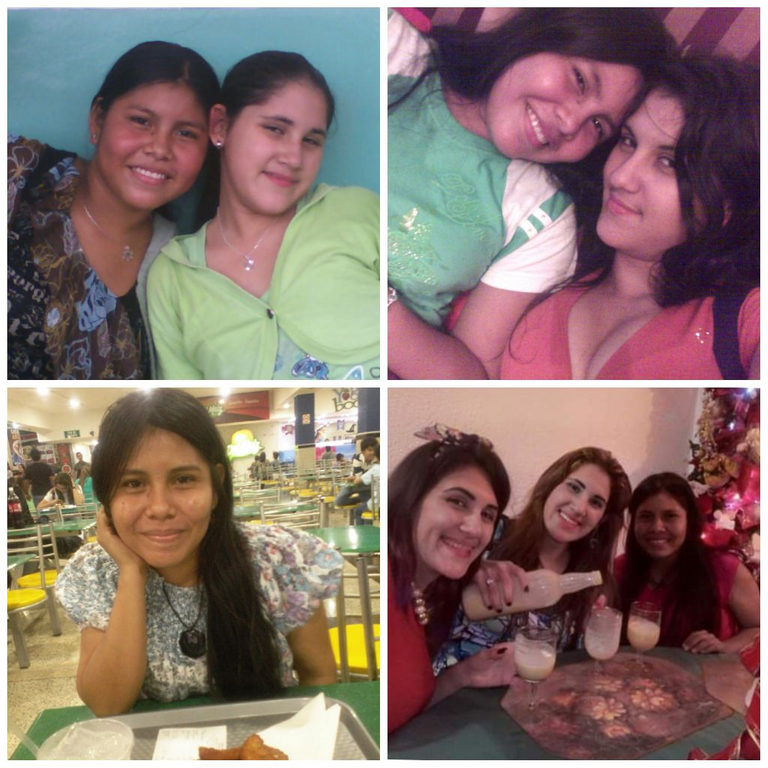
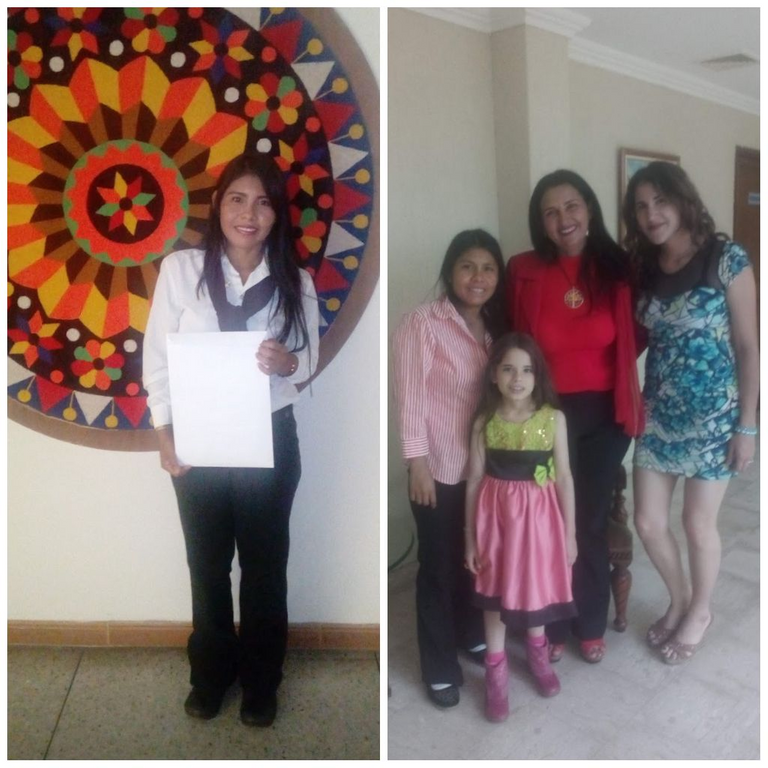
Entonces yo conocí a una muchacha de la etnia Yukpa ella tenía tan solo 16 años y trabajaba en casa de una tía, ella cansada de maltratos decide escaparse y como yo escribía con ella por teléfono ella un día me llama y me cuenta todo lo que vivió, cómo era huérfana de madre y padre y su padre muere cuando ella vive en esa casa, ella decide vivir con nosotros en Maracaibo y se viene a mi casa y mis papás la reciben, es nuestra hermana de crianza, siempre estábamos juntas las tres, compartimos muchas historias y aquí vivió por 13 años, se formo y entro a la universidad, en el 2019 yo la invite a trabajar en un plan vacacional, su anhelo es ser maestra, así que la invite a trabajar y ella tenía mucho temor de que la rechazaran por ser Yukpa y yo le enseñe que no debía tener miedo, que ella era una persona normal, que tenía que demostrar sus habilidades y no su temor, luego de un tiempo, el año pasado tomo la decisión de regresar a su pueblo para ver en qué podía ayudar, siempre nos llama para saber cómo estamos y esperamos ansiosamente que termine la pandemia para reencontrarnos.
Then I met a girl of the Yukpa ethnic group, she was only 16 years old and worked at an aunt's house, she was tired of mistreatment and decided to run away and as I was writing to her by phone, one day she called me and told me everything she lived, She decides to live with us in Maracaibo and comes to my house and my parents receive her, she is our foster sister, the three of us were always together, we shared many stories and she lived here for 13 years, In 2019 I invited her to work in a vacation plan, her desire is to be a teacher, so I invited her to work and she was very afraid of being rejected for being Yukpa and I taught her that she should not be afraid, that she was a normal person, that she had to demonstrate her abilities and not her fear, after a while, last year she decided to return to her village to see how she could help, she always calls us to know how we are and we anxiously await the end of the pandemic to meet again.
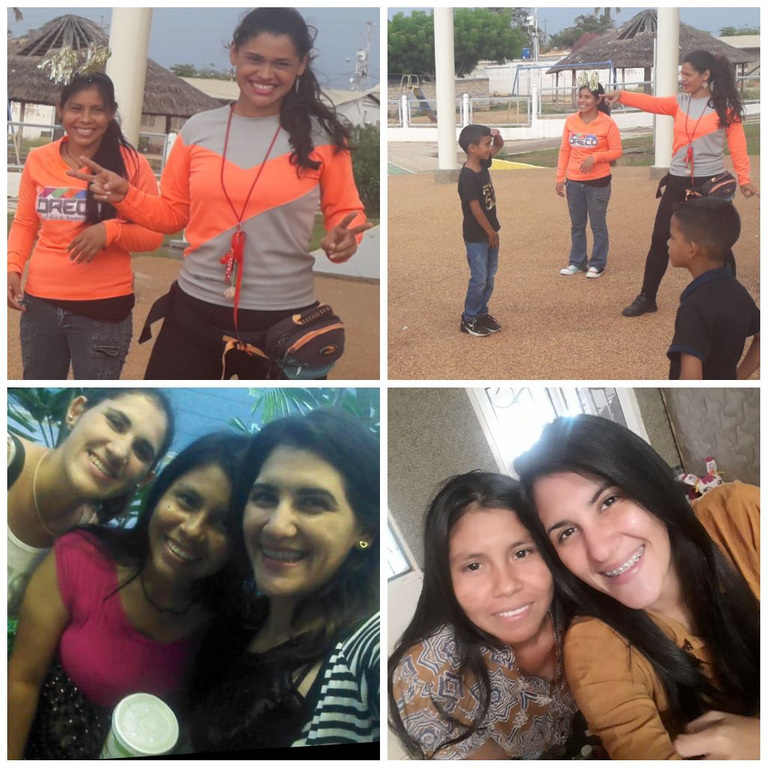

La imagen del banner y el divisor fueron realizadas y editadas con Photoshop Cs 6 | The image of the banner and the divider were made and edited with Photoshop Cs 6.
Todas las imágenes fueron tomadas por mi. | All images were taken by me with my .
Traducido con www.DeepL.com | Translated with www.DeepL.com/Translator.


https://twitter.com/AlechiquiRINCON/status/1434765481274224646
The rewards earned on this comment will go directly to the person sharing the post on Twitter as long as they are registered with @poshtoken. Sign up at https://hiveposh.com.
@soyalex, After read whole blog of you, I really proud of your good effort. In this international day of indigenous women day you and girl of the Yukpa ethnic group wear very suitable clothes. Actually we must respect to our heritage. Thanks for share you story with us.
Thank you very much for reading me, it comforts me to know that someone learns a new story through me.
Wow! Nice blog
thanks for the visit friend
I am happy to read your blog
Congratulations, your post has been upvoted by @dsc-r2cornell, which is the curating account for @R2cornell's Discord Community.
Enhorabuena, su "post" ha sido "up-voted" por @dsc-r2cornell, que es la "cuenta curating" de la Comunidad de la Discordia de @R2cornell.